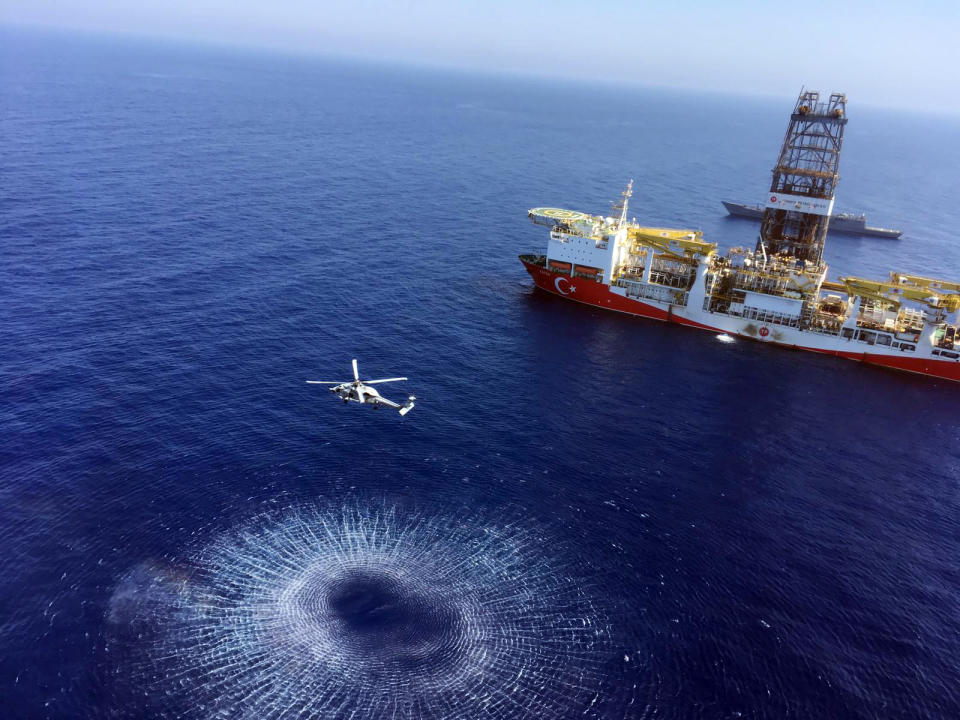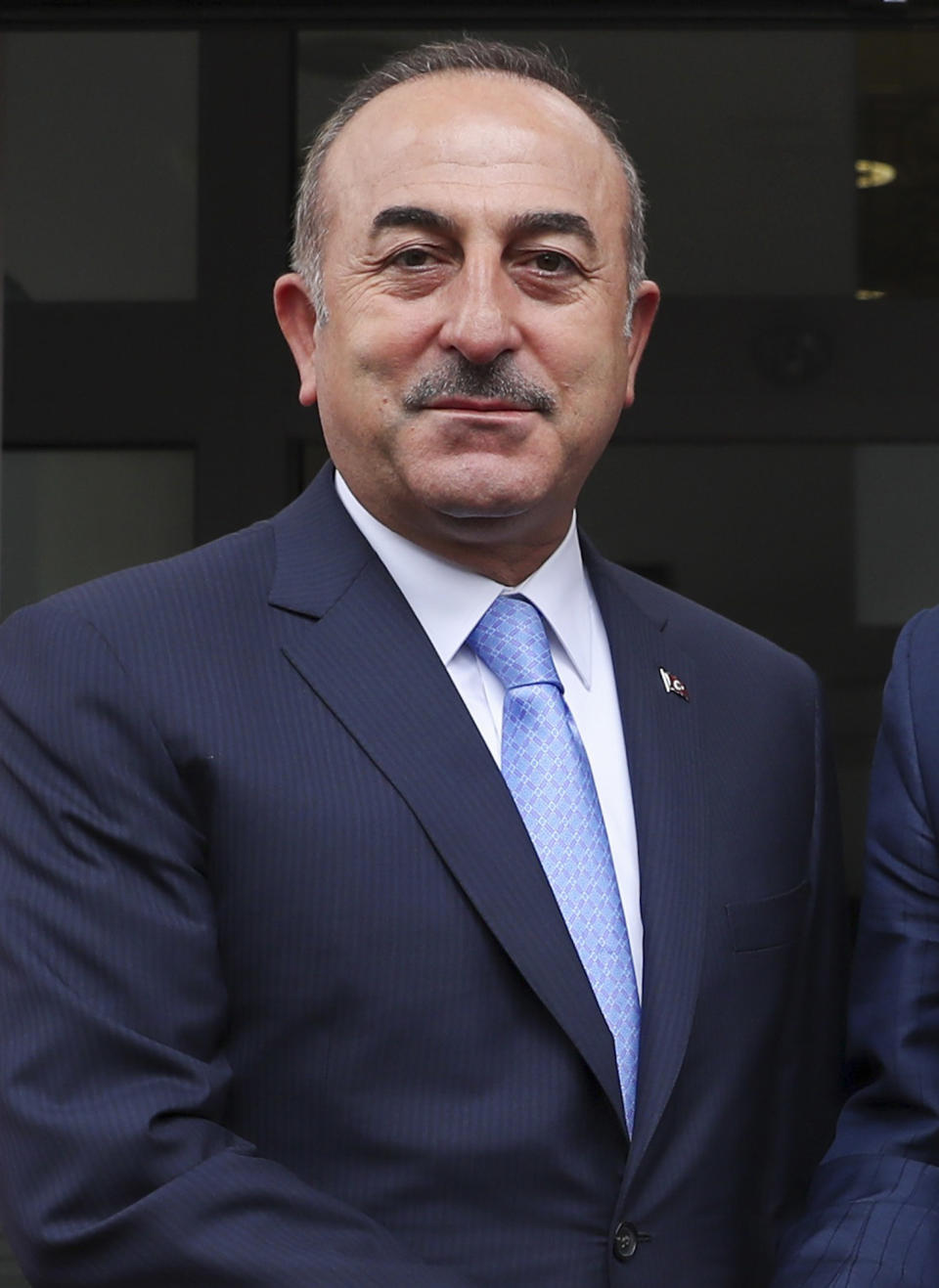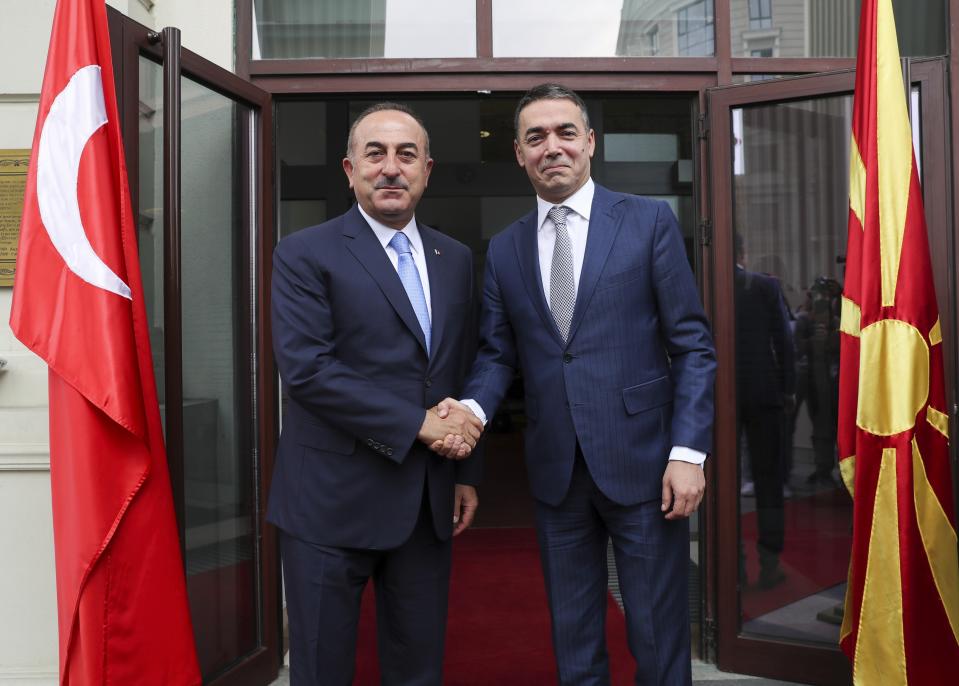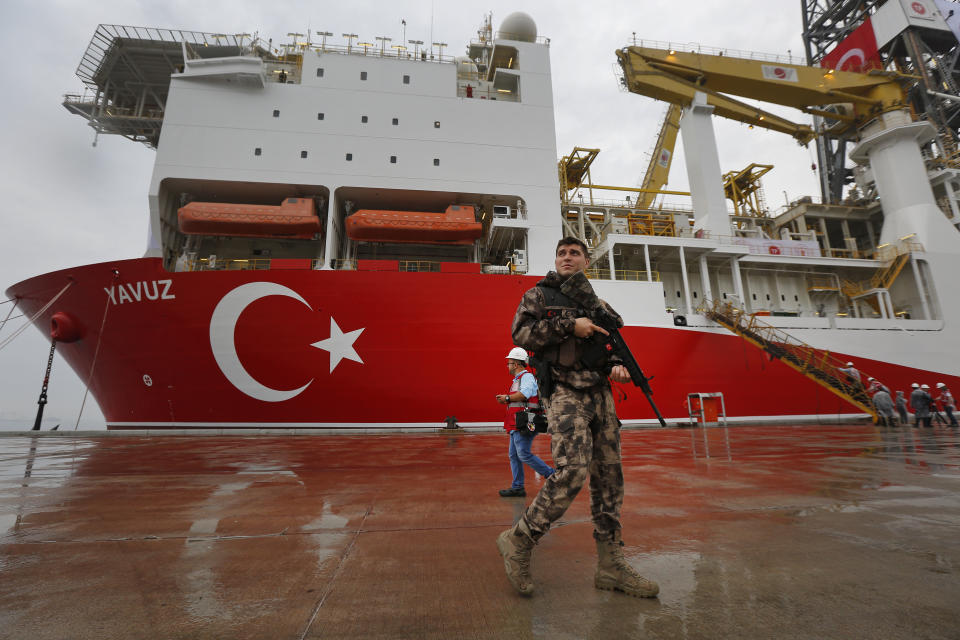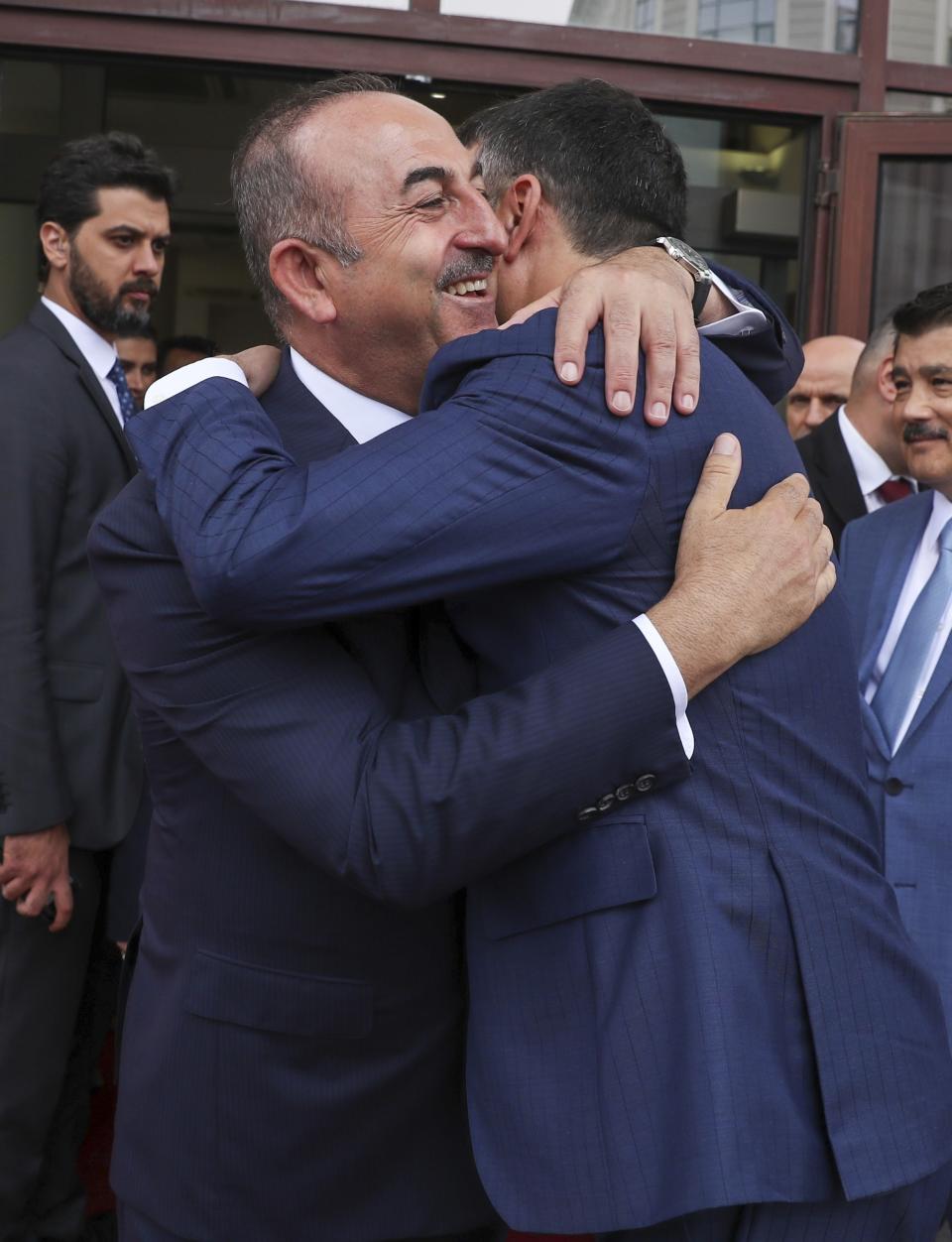The Latest: Greek Cypriots reject joint gas drilling panel
ANKARA, Turkey (AP) — The Latest on Turkey and the sanctions approved by the European Union over the dispute about drilling near Cyprus (all times local):
4:20 p.m.
Greek Cypriot leaders on ethnically split Cyprus have turned down a renewed proposal by breakaway Turkish Cypriots to form a joint committee on managing natural gas discovered offshore the east Mediterranean island nation.
Deputy Minister Vasilis Palmas says the proposal by Turkish Cypriot leader Mustafa Akinci detracts from the substance of Cyprus' political problem and the need for an immediate resumption of reunification negotiations.
Speaking after Tuesday's leaders' meeting chaired by President Nicos Anastasiades, Palmas said Akinci's proposal contains provisions that "don't serve the best interests of either the Cyprus Republic or the Cypriot people as a whole."
Akinci reissued the proposal just prior to the European Union's decision to issue sanctions against Turkey for illegal gas drilling in waters where Cyprus has exclusive economic rights.
___
10 a.m.
Turkey has rejected as "worthless" an initial set of sanctions approved by the European Union against Ankara, and vowed to send a new vessel to the eastern Mediterranean to reinforce its efforts to drill for hydrocarbons off the island of Cyprus.
EU foreign ministers on Monday approved sanctions against Turkey over its drilling for gas in waters where EU member Cyprus has exclusive economic rights. They said they were suspending talks on an air transport agreement, as well as high-level Turkey-EU dialogues, and would call on the European Investment Bank to review its lending to the country.
They also backed a proposal by the EU's executive branch to reduce financial assistance to Turkey for next year. The ministers warned that additional "targeted measures" were being worked on to penalize Turkey, which started negotiations to join the EU in 2005.
The EU sanctions came as Turkey also faces possible economic sanctions from the U.S. over its purchase of a Russian-made missile defense system which Washington says is incompatible with NATO equipment.
